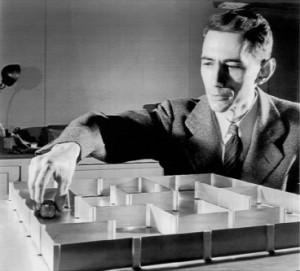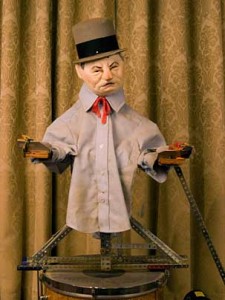Claude Shannon: Digital Pioneer’s Work Still Reverberates
-
-
slice.mit.edu
Filed Under
Recommended

As summer wanes, it is a lovely time for some reading that is part pleasure, part substance. Materials about the late MIT professor Claude Shannon SM ’40, PhD ’40—digital pioneer, toy designer, avid chess player, and amateur juggler—might be a good start.
Cited as the father of information theory, Shannon’s early ideas proved key to the redesign of the telephone system and the development of the modern computer. During WWII, he met the famous British mathematician Alan Turing, an exchange that exchange resulted in Shannon’s pioneering analysis of cryptography systems.
A New York Times review of a new book, The Information, zeroes in on Shannon’s 1948 work, particularly focusing on his 1940s efforts at Bell Laboratories.
Shannon, who taught at MIT from 1956‒1978 and died in 2001, invented the field of information theory and set its research agenda for the next 50 years, according to an MIT News Office article.

His MIT master’s thesis was “possibly the most important, and also the most famous, master’s thesis of the century,” said Howard Gardiner. (Ever used the word “bit”?) You can read his master’s and PhD theses, see his Theseus Maze, and watch a 1961 CBS video on computer research and artificial intelligence citing his work—just go to this MIT Museum page.
Shannon was also a whimsical genius. The MIT Museum collected toys and other devices he created such as the first artificial intelligence mouse to navigate a maze and a mechanical W.C. Fields that pays tribute to the actor's days as a vaudeville juggler. That collection presents the pieces to the public for the first time.







